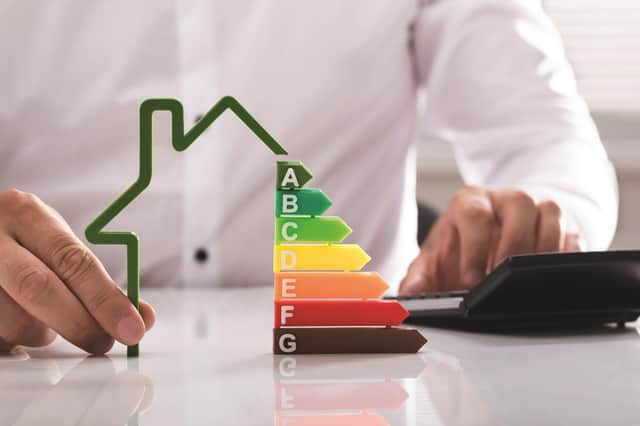Green Recovery to save our economy and the planet


We hear or read the phrase “Green Recovery” on a daily basis as the UK Government plots a twin-track environmental and economic course to navigate out of the tumultuous waters of Covid-19.
But what does Green Recovery actually mean? Can it deliver a meaningful, sustainable recovery and not end up on the discarded cliché pile alongside its sibling, “Build Back Better?”
Clare Foster, Head of Clean Energy at Edinburgh-headquartered law firm Shepherd and Wedderburn, is optimistic.


Foster is a fervent believer in putting climate change mitigation front and centre of policy-making.
She says that the winds of change are blowing hard:
“Before Covid-19, many regarded climate change and sustainability as something to be tackled by those who worked in the clean energy sector.
“Now, we are all in it together –everyone has suffered at the hands of the pandemic. Success will be measured differently as we look to address the effects of the coronavirus pandemic and try to get the economy back on track.
“We are now looking at this through a different lens. As we seek to rebuild the economy, there is a human element that just wasn’t there before. It’s no longer soley about returns on investment and keeping shareholders happy. There is a moral imperative to make people’s lives better.”
But how can the concept of a Green Recovery help?
Foster says: “Previously, sectors worked independently of each other and often in ‘silos’. The Green Recovery provides an umbrella that sits above and across everyone, from big industry players and governments to individuals. It is a much more inclusive, holistic way of looking at economic recovery.”
Foster observes that the public sector is working closely with the private sector on sustainable objectives: “That engagement is critical but we can’t allow it to become a perpetual talking-shop.
“We need action and deployment in terms of policy, legislation and support mechanisms. Government must listen and act – that’s when things can really change in terms of pace and scale.”
It is clear that certain sectors will help the transition faster than others, says Foster.
As a member of the Edinburgh Climate Commission, she sees heat and transport as two fundamental targets:
“Many people still live in poorly heated houses, often with inefficient gas boilers. In tackling the issue of decarbonisation of heat, we have to find solutions that address fuel poverty and make houses sustainable and warm for people to live in.”
The construction industry that will build those houses has a massive role to play too.
“It’s ready and willing, but the government needs to support and facilitate this; it’s all about partnership,” says Foster.
“Government recognises that greener homes can make a significant contribution towards its net-zero ambitions. With 25 per cent of Scotland’s emissions coming from heating buildings, making homes greener will have a significant impact.
“Scottish planning policy will be crucial in all this, so it’s not just about the construction sector using sustainable construction materials and building new housing estates with district heating schemes. Policy has to facilitate green new build and the energy efficient retrofit of existing buildings.”
Transport is another huge issue, says Foster. “In Edinburgh, transport accounts for 31 per cent of emissions, so decarbonising transport will take a huge effort.
The Edinburgh Climate Commission recommends delivering a plan for a fully integrated transport system, including a significant expansion of bus, tram, car-pooling and bike hire networks, with investment in active travel infrastructure and a city-wide electric vehicle charging network.
We need to reduce vehicle dependency and move away from diesel-powered HGVs transporting goods around the country.”
However, the response to Covid-19 presents opportunities. Foster explains: “Many global businesses are saying people can work flexibly from home 50 per cent, 75 per cent, even 100 per cent of the time. Google and Facebook have both said they intend to allow employees to work from home until the middle of next year.
“Will people get back in their cars for short journeys or keep walking? Will they commute for one or two days rather than five, or not at all? Will professionals continue to take the red-eye flight from Edinburgh to London to transact business? This is a unique opportunity to take stock of the transport sector and look at what is going to be needed in the context of a more sustainable, net-zero future.”
Shepherd and Wedderburn is analysing its own carbon footprint with a view to implementing more ambitious sustainability targets.
Foster says firms of all sizes can make small but significant changes: cutting back on printing; procuring and purchasing goods more sustainably; ensuring buildings and services are energy-efficient, and reducing the impact of employee journeys to and from work by looking at flexible working policies.
If employees have to fly, Foster urges businesses to engage in carbon offsetting.
She says: “Businesses are starting to look at everything in a more integrated way. Sustainability policies have not been given the priority they deserve, but things are improving and this is a real opportunity to do better. If businesses do all they can, that will feed into the behaviour of employees too.
“Everybody has to contribute to a green recovery; a sustainable future demands both a top-down and a bottom-up approach.”
Foster believes education and communication is a crucial focus.
She adds: “Covid-19 has affected all our lives because we are living through the worst pandemic in 100 years and it is tangible. However, when it comes to climate change it’s ‘mañana, mañana’, because it simply hasn’t had the same impact on our day-to-day existence – yet.
“Climate change isn’t just about being net-zero by 2045 or 2050; it’s about taking urgent action now and throughout the next decade to prevent catastrophic impacts on our lives, and those of our children and grandchildren.
“Leadership is key – we need the Prime Minister and First Minister to be talking about climate change daily in the same way they have been about Covid-19.”
Does Foster think we can use the idea of a Green Recovery to focus minds? “We are facing the deepest recession since records began. We need to get the economy on track, but in a way that ensures a sustainable long-term future.
“There is an appetite from all sectors to support that recovery and if the by-product is a greater focus on sustainability, I will be delighted. If we just focus on the economy and get a 2°C rise in temperature, that’s not really a future at all.”
However, Foster thinks the dial is shifting: “Investors are looking at climate change and wanting to invest in an environmentally responsible way. I’m having positive conversations with people who can make a difference, whether that’s developers or local authorities. Everyone is engaged, but talking has to translate quickly into action.
“This is on all of us – governments, businesses large and small and individuals. Failure isn’t an option and, if we work together to make a difference, we can turn a Green Recovery into a green revolution.”
For more information, visit their website shepwedd.com